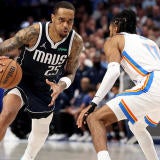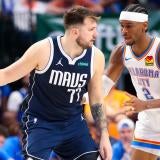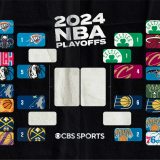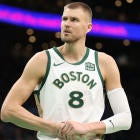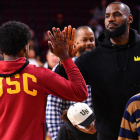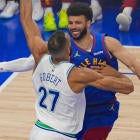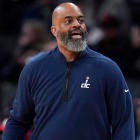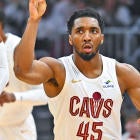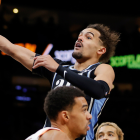After years of speculation about a possible reunion with coach Brad Stevens, free-agent swingman Gordon Hayward agreed to sign with the Boston Celtics, announcing the move Tuesday night on the Players Tribune. Stevens, of course, is close with Hayward from his days at Butler, and the Celtics provide Hayward with a bright future and the opportunity to win now. Boston, the top seed in the Eastern Conference playoffs last season, has the past two No. 3 picks in its roster and potentially could have the first and second picks in next year's draft (unlikely, but it's not out of the question that the Brooklyn Nets and Los Angeles Lakers are two of the league's worst teams). It is obvious why this was an attractive destination.
Where, though, does this leave the Utah Jazz? They patiently had put together a tough, unselfish and versatile team over the past few seasons, with Hayward at the center of it all. Without their franchise player, what are they?
1. This is a big blow
There is no sugar-coating this, the Jazz are in some trouble. SportsLine projections have them out of the playoffs in the West without Hayward. Plus, he is leaving and the Jazz get nothing in return. This is an All-Star who was drafted No. 9 overall and improved year after year with this organization. When he signed a maximum offer sheet as a restricted free agent in 2014, it was largely seen as an overplay or, more kindly, a bet on his potential. Matching it turned out to be the absolute right decision, as he has gotten stronger, become an excellent defender and developed as a shooter and playmaker. Utah's mistake, in retrospect, was letting him sign an offer sheet — it could have signed him to more lucrative, five-year deal and avoided this scenario. Despite doing just about everything else right, it now cannot replace him.
Hayward is not exactly a ball-dominant guy, and coach Quin Snyder's system is predicated on passing, but he had the highest usage rate on the team and led Utah in scoring at 22.9 points per game. In the playoffs, against defenses that zeroed in on him, Hayward was even better, suggesting he could have taken more control of the offense had he decided to return. Now that he's gone, the Jazz must make up for his absence collectively.
Defensively, they will miss his quickness, anticipation and physicality. He did not shy away from guarding other star wings, and he could switch onto point guards and power forwards. Utah's team defense, anchored by Rudy Gobert, could remain elite, but there will be more pressure on Rodney Hood and Joe Ingles.
2. This is still a balanced team
The Jazz are obviously worse off without Hayward and George HIll, but look at this 10-man rotation:
PG: Ricky Rubio, Dante Exum
SG: Hood, Alec Burks, Donovan Mitchell
SF: Ingles, Joe Johnson
PF: Derrick Favors, Boris Diaw
C: Gobert
Does that look bad to you? No way. If you're the type of person who watches League Pass every night, you'll want to watch this team. Utah has perimeter stoppers, and Draymond Green is the only interior defender on the planet in Gobert's class. Offensively, it has a bunch of high-IQ guys who will move the ball and can manufacture good looks. It will still be able to stretch the floor with small lineups and dominate the glass with big lineups. Unlike most teams, its wings -- and even a couple of the guys who play four regularly — can run pick-and-rolls.
With Hayward, the Jazz would have likely had home-court advantage in the playoffs, health permitting. Without him, they will not necessarily drop out of the playoff picture. They'll struggle to create out of isolation situations, and there will need to be some internal improvement, but you can still make the argument that they're more complete than, say, the new-look Oklahoma City Thunder and Los Angeles Clippers.
3. Is Hood ready for a featured role?
Sometimes, the skills are there, and you just need is the opportunity and confidence to use them. Look at how Isaiah Thomas took control of the Celtics' offense or how Mike Conley had a career season when the Memphis Grizzlies finally empowered him to be more aggressive. Hood might not break out like those guys, but he is on my list of players who could be seen totally differently with the ball in his hands and an attacking mentality.
It would be crazy to expect Hood to transform into Hayward. His game isn't as polished, nor should he be asked to match Hayward's numbers. Utah sometimes gave the ball to Hood late in games, and simply had him run pick-and-rolls over and over. He is a smooth playmaker who can see over most defenders, make pull-up 3s and has a nice mid-range game. Given that he will be a restricted free agent next summer, this is the right time for him to accept more offensive responsibility and prove he's more than a complementary player.
4. Development is even more important now
Part of the reason the Jazz seemed like a great option for Hayward is they haven't maxed out their capabilities. Hood is 24 and Gobert and guard Alec Burks (who hasn't really been healthy for a couple of years) are 25. Then there is 21-year-old guard Dante Exum, selected No. 3 in 2014 and full of potential, plus 20-year-old rookie guard Donovan Mitchell. Utah's player development program has two big success stories in Hayward and Gobert, and it has more work to do. If you are reaching for a silver lining, it's the room for these young guys to grow into bigger roles.
5. Are there any other moves that can be made this summer?
As much as the Jazz were hoping to retain Hayward, they must have backup plans. They don't have significant cap space, but they do have options. They have until July 15 to decide whether or not to guarantee Diaw's $7.5 million salary. They could trade him to a cash-strapped team before then, and Johnson's $10.5 million expiring contract could be moved, too. The big name to watch, though, is Favors. He is entering a contract year, and if Utah is not sold on partnering him with Gobert long-term, it needs to at least see what his trade market looks like.









